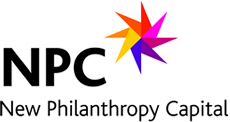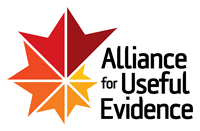Resources » Format » Event Reports
Event Reports
Event Reports
The Public Services (Social Value) Act has now been in operation for a year. This report from Social Enterprise UK looks at the challenges of implementation so far and gives recommendations for the continued success of the act. This report was produced from the discussions and workshops at the Social Value Summit, co-produced by Social Enterprise UK and Landmarc on January 28th and 29th 2014.
Jeudi 20 mars 2014, l’Agence nouvelle des solidarités actives (Ansa) a animé une table-rondesur le thème de « L’expérimentation sociale à l’épreuve du terrain ». Cette soirée a rassemblé tous les acteurs – institutionnels, politiques, associatifs, universitaires ou du secteur privé – que le sujet intéresse, interpelle et questionne. Cet ouvrage a été réalisé par Sylvie Le Bars, Marion Prigent, Ben Rickey, Claire-Selma Aïtout avec la participation de Marion Drouault et Sylvie Hanocq.
SIAA’s 2013 annual conference, Beyond Measurement, took place on December 10th at ESSEC Business School in France. This publication provides reflections on the day and access to further resources.
This paper from Cabinet Office outlines some of the ideas and themes from the discussions held at the G8 Social Impact Investment Forum on 6 June 2013. It sets out:
- the perspectives shared
- the challenges identified
- the actions agreed which will help build an international market
On March 26, 2003, The Goldman Sachs Foundation and The Rockefeller Foundation hosted over fifty funders at Goldman Sachs offices in New York to discuss the issues surrounding assessing social impact and social return on investment (“SROI”). We were pleased with the high level of interest in this topic and the insights articulated during the day’s discussions. Our focus was on two thematic fields: education/youth development and community development/employment.
The purpose of the meeting was twofold:
- To convene a cross-section of charitable and double bottom line funders to discuss and learn from various approaches to assessing social impact and social return on investment in both the nonprofit and for-profit sectors
- To begin a dialogue on developing a common set of expectations for metrics or standards that could be used in the education/youth development and community development/employment sectors to assess the social impact of philanthropic and other social purpose investments.
In March 2013, Social Business International and the University of Northampton hosted the Inaugural E3M European Conference themed around the topics Markets, Money, Models and Measurement. It took place e in the context of
the EU Social Business Initiative. The European Commission was a conference partner and seven senior
Commission officials from DG Internal Market, DG Employment, Social affairs and Inclusion, DG Research and
Innovation, and BEPA attended the event.
The aims of the event were to promote business opportunities between social enterprises from different
countries within the single market, to share knowledge and to shape the policy agenda on social business
going forward at EU level and in member states.
On 24th January a group organised by E3M with Baker Tilly, CAN, and Big Society Capital, hosted by Bates Wells & Braithwaite, E3M founder members, came together to challenge the picture of social impact measurement as a purely funder or commissioner-driven need. This report by Jim Clifford, Kate Markey and Natasha Malpani documents the results of that challenge.
London Voluntary Service Council (LVSC) and the Social Impact Analysts
Association (SIAA) jointly hosted an event to explore, on a
practical level, the challenges which social purpose organisations face in
assessing their social impact. This event report provides an overview
of the presentations, discussions and learning from the evening. It also sets
out a number of recommendations and follow up actions that emerged from
the discussion and evaluation of the event.
This report synthesises the learning from the first convening facilitated by the Social Research Unit at Dartington and the Bill and Melinda Gates Foundation in November 2011 on scaling what works in improving maternal health and reducing infant mortality in the developing world.
These slides summarise emerging lessons from several discussions on how to scale impact convened by the Social Research Unit at Dartington with the Bill & Melinda Gates Foundation. They are the product of the brilliance of many experts whose discussions are synthesised in two publications entitles Achieving Lasting Impact at Scale Part 1 and 2.
This report synthesises the learning from the first convening facilitated by the Social Research Unit at Dartington and the Bill and Melinda Gates Foundation in November 2011 on scaling what works in improving maternal health and reducing infant mortality in the developing world.
In September 2011, 30 leaders in the field of social impact measurement came convened at an Impact Summit, where they discussed how to embed impact measurement throughout the UK social sector. This report by Benedict Rickey and Tris Lumley from NPC, and Matthew Pike from View, sets out the results of that discussion. It sows the seeds for the development of Inspiring Impact.
As development organisations, we are all finding ourselves placing a greater emphasis on measuring for results, on looking for evidence of impact, on justifying our effectiveness and on responding to a growing demand for accountability. Development organisations are continually experimenting with innovative approaches to monitoring and evaluation (M&E).
In response to this perennial challenge to get the measurements right, INTRAC (UK), PSO (the Netherlands) and PRIA (India) brought together over 170 participants from 41 countries in Soesterberg, the Netherlands to share their experiences and approaches through case studies and workshops, exchanging ideas and reviewing new initiatives that are being developed. The conference’s overall aim was to contribute to improving understanding and action on M&E within international development. There was a particular emphasis on the capacity of civil society organisations to use M&E for international learning and management purposes, whilst at the same time striving to meet the increasingly complex demands of multiple stakeholders.





